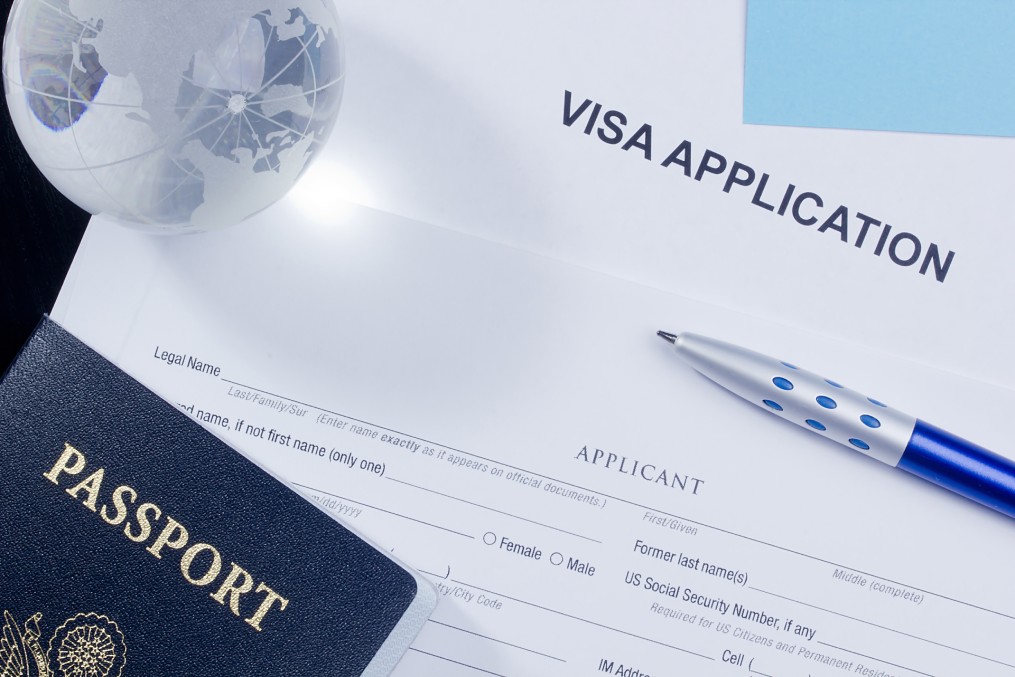A Beginner’s Guide to International Moving Regulations
Mar 18, 2024

Moving abroad can be an exciting adventure, but it also involves navigating a complex web of regulations and legal requirements. Every country has its own set of laws and regulations, and it expects everyone to comply with them. Non-compliance often leads to deportation and the imposition of further restrictions for future travel.
In this international moving regulations guide, we will explain the most critical legal aspects you need to take care of when moving overseas.

Guide to International Moving Regulations
1. Visa and Residency Requirements
Visa and residency determine your legal status and ability to reside in a foreign country. For visiting a country, you need to obtain a visa and meet the residency requirements.
The good news for Americans, however, is that US passport holders can travel to 151 countries visa-free. This means you don’t need to get a visa to enter that country. However, there are some restrictions, which vary from country to country.
For example, Americans planning to visit Canada temporarily for tourism, business, or study purposes may require a Temporary Resident Visa (TRV) or an Electronic Travel Authorization (eTA), depending on their nationality and travel circumstances. These visas typically have specific validity periods and may restrict certain activities, such as working or studying, without additional permits.
You can move towards permanent residency by fulfilling the requirements and eventually obtaining citizenship if that’s your goal.
You must go through the visa requirements before moving into a country and obtain the required visas.
2. Custom Regulations
Custom regulations play a significant role in international relocation, governing the importation of personal belongings, household goods, and vehicles. These detail what you can and cannot bring into the country. Every country has its own laws regarding this.
For example, Canada lists several items that you cannot bring into the country. This includes firearms, weapons, explosives, food, plants, animal products (must be declared beforehand), certain consumer products, etc. You must explicitly report your belongings to a border service officer and get clearance.
Likewise, Greece has its own list of prohibited items that you mustn’t bring into the country. Greece, as a member of the European Union, adheres to EU regulations regarding the importation of alcohol and tobacco products. Travelers are allowed limited quantities of these items duty-free for personal use, but exceeding the limits may incur taxes and duties.
Custom regulations play a crucial role in international relocation, and Americans moving to Canada, Greece, or any other country must familiarize themselves with the specific requirements and restrictions of each country. This ensures a smooth transition and any customs-related issues.

3. Taxation and Financial Consideration
Understanding the tax laws and financial regulations of the destination country is crucial for legal compliance. Being aware of tax differences between countries allows you to optimize your tax situation and minimize tax liabilities. This may involve taking advantage of tax deductions, credits, and incentives available in the destination country.
Start by researching the tax laws and regulations in the foreign country. For example, Canada has a progressive income tax system, with federal and provincial/territorial tax rates varying based on income levels. Americans moving to Canada may need to file income tax returns with both the Canada Revenue Agency (CRA) and the Internal Revenue Service (IRS) in the United States.
There’s also a case of double taxation. Americans moving abroad may be subject to taxation in both the United States and the destination country. Understanding tax treaties, foreign tax credits, and exclusions is crucial to avoid double taxation and mitigate the impact on personal finances.
4. Health Insurance and Healthcare
Most, if not all, countries require you to have health insurance coverage before entering the borders. Failure to provide adequate insurance may result in visa denial or delays in residency approval.
Research the structure and functioning of the healthcare system in the destination country. Determine whether it operates under a public, private, or mixed model and familiarize yourself with access points, referral procedures, and emergency services.
Next, assess the adequacy of your existing health insurance coverage, including coverage for medical expenses, hospitalization, emergency care, prescription drugs, and repatriation. Consider purchasing international health insurance or supplementary coverage to fill any gaps in coverage.
If you’re suffering from any diseases, understand how pre-existing medical conditions are treated under the destination country’s healthcare system and insurance regulations. Some countries may impose waiting periods or exclusions for pre-existing conditions, while others may offer coverage with certain limitations.

5. Driving and Transportation
If you’re going to drive in a foreign country, you need to respect the local laws and regulations laid out for driving.
Different countries have different driving laws. For example, Canada generally recognizes foreign driver’s licenses for temporary visitors, tourists, and new residents.
Likewise, The European Union has mutual recognition agreements with certain countries, allowing holders of valid foreign driver’s licenses to drive in EU member states for short visits. Americans visiting the EU for tourism or short-term stays can typically use their US driver’s license without needing an International Driving Permit (IDP).
While not mandatory, obtaining an International Driving Permit can facilitate driving in Canada, especially if your foreign license is not in English or French. The IDP serves as a translation of your foreign license and must be carried along with your original license.
Because of the differences, before driving in a foreign country, research the specific driving regulations, license requirements, and insurance obligations applicable to your destination. Familiarize yourself with local road signs, traffic laws, and driving customs to drive safely and avoid legal issues.
Also, always carry your driver’s license, International Driving Permit (if applicable), vehicle registration, and proof of insurance when driving in a foreign country.
6. Employment and Work Permits
If you’re moving internationally for employment purposes, then you’d have to obtain work permits to comply with local laws.
So, research the available work permit options and eligibility criteria in the destination country, considering factors such as occupation, duration of stay, and employer sponsorship requirements.
If you’re already hired by a foreign company, they will most likely make the arrangements for you. But from your end, gather the necessary documentation for your work permit application, including job offer letters, educational credentials, professional certifications, and proof of financial solvency. Ensure that all documents are accurate, up-to-date, and properly authenticated as required.
Additionally, you’ll have to adhere to immigration regulations and procedures for work permit applications, including submission deadlines, processing times, and required fees. Follow the instructions provided by immigration authorities and seek assistance from legal professionals or immigration consultants if needed.
Freelancers and digital nomads may not require work permits. But they will have to pay the taxes wherever applicable. Therefore, check with the country’s labor department to get more clarity.
7. Expiry and Renewals
Most documents authorizing you to live and work in a foreign country have expiry dates. After those dates, they are no longer valid. This means you can no longer stay or work in that country.
Therefore, you must renew those documents well in advance. First is the visa. The visa has a set expiry date, and you’re expected to get it renewed weeks before it expires. The same goes for passports, driver’s licenses, vehicle registration, etc.
As a best practice, keep track of the expiration dates for all essential documents. Create a calendar or digital reminder system to alert you of upcoming renewal deadlines. Initiate the renewal process well before the expiration date to allow for sufficient time to gather necessary documentation, complete forms, and submit applications. Delays or complications may arise during the renewal process, so starting early minimizes the risk of missing deadlines.

Have a Stress-free International Move With Us!
Keep in mind that regulations keep changing and evolving. Part of the adventure of moving abroad is to keep yourself informed of these changes and adjust accordingly. When in doubt, you might want to consult your moving company for any guidance.
Atlas Allied has been proudly affiliated with Allied Van Lines since 1948. With our expertise and commitment to excellence, we guarantee a seamless and stress-free move. Trust Atlas Allied for a relocation experience like no other. Contact us today for a free moving quote!